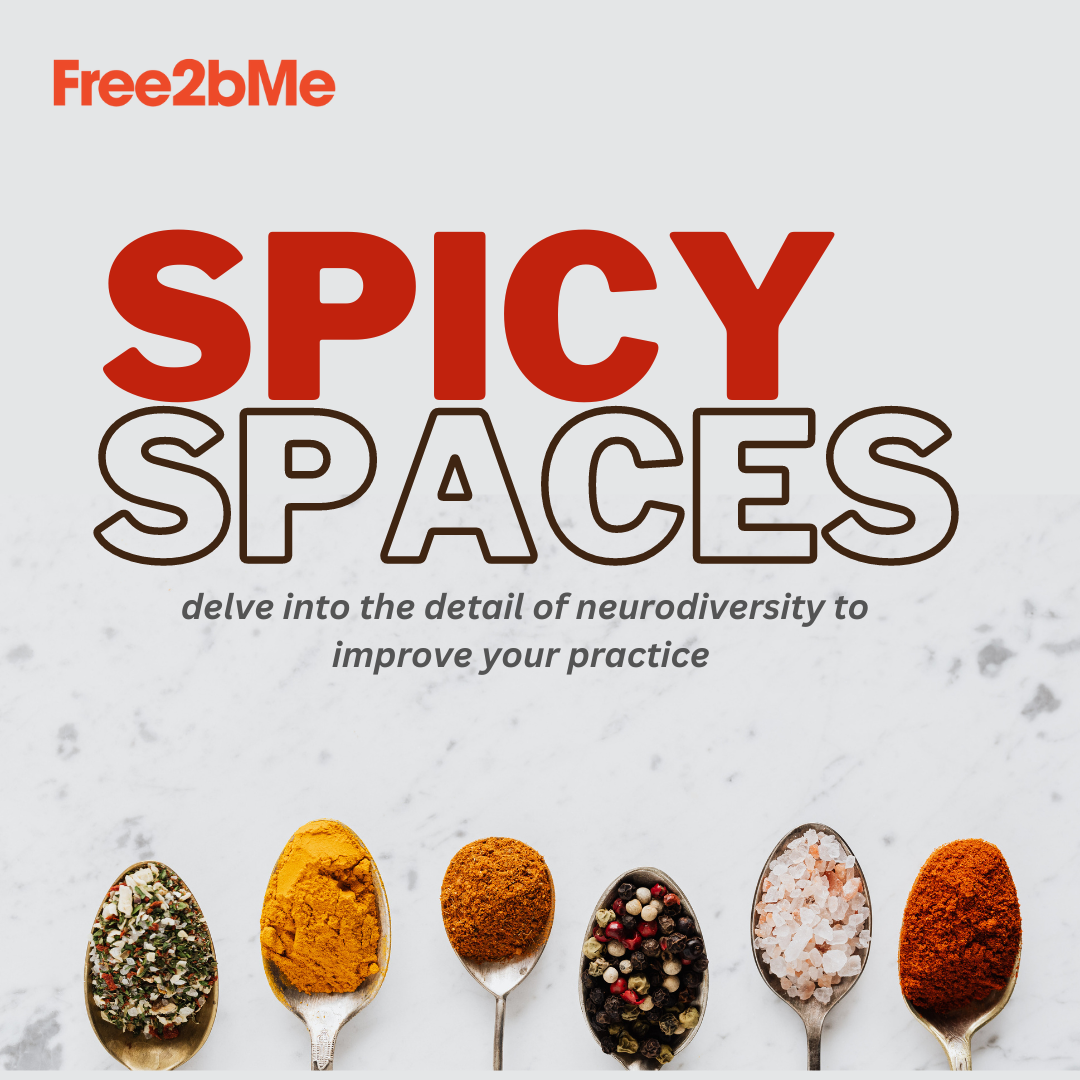Free2BMe Blog


Help! We’ve got no training budget…
Neurodiversity training is becoming essential CPD for counsellors and therapists and those providing mental health services. But what can you do if you’re a small charity and don’t have a training budget?


Five reasons not to do neurodiversity training in 2025
Nobody needs specialist neurodiversity training in 2025. Your organisation definitely won’t benefit from the improved productivity, accessibility and engagement that a well-trained and neurodiversity affirming staff team could achieve.
Read on for five reasons your organisation definitely doesn’t need specialist neurodiversity training this year and where not to find the kind of expert neurodiversity training your organisation needs.

(Good) Neurodiversity training is boring
OK, I’m kidding. Sort of.
Neurodiversity training for mental health professionals shouldn’t be dull, of course. It should be engaging, interactive, practical and useful.
However.
Neurodiversity training also needs to engage learners in some “long form” skills. Good neurodiversity training encourages deep thinking, reflection, self-awareness, uncovering unconscious bias, and sometimes uncomfortable truths about how the world operates.
Another uncomfortable truth is that we can’t get those things from social media.


A-Level results and neurodivergent transitions
For neurodivergent young people, A-Level results day can be a rollercoaster of emotions - and it’s not just about opening the envelope. It’s also about what comes next. Find out how you can support the neurodivergent young adults in your life navigate results day and beyond.

Spicy space: Using metaphors & stories with neurodivergent clients
Free2BMe's next Spicy Space conversation is coming up on the 15th June 2024. It will look at how we might use/create metaphors and stories for/with neurodivergent clients.

Rejection sensitivity dysphoria or Reasonable Response to Rejection
Rejection sensitivity dysphoria or RSD is sadly familiar to most ADHD people, but what is it? Aitch Nicol considers the view that RSD is a reasonable response to what is essentially complex trauma and explores how therapists might help ADHDers recover from RSD by taking down the mask that has been both their protector, and their downfall.

Neurodivergence & emotions: what’s really going on?
Often talking therapies focus on having a client state what specific emotion they are feeling. But does that really work for neurodivergent people? Our next Spicy Space workshop is a chance to explore what is really going on for ND clients, and ND therapists.

ADHD as social contagion or actual mental health crisis: a response to Philippa Perry interview, The Times, 10 Oct 23
In a recent Times article, Philippa Perry claimed that ADHD is “fashionable”, a trend driven by social contagion. We argue that a “lost generation” of women being misdiagnosed or missed entirely together with a woeful lack of support for ADHDers is less social contagion and more mental health crisis

Is core counselling training neuro-normative? An exploration of what it’s really like to work as a neurodivergent therapist
Is core counselling training neuro-normative? Does it work for, or against, the ability of neurodivergent therapists to develop a strong bond with their neurodivergent clients? We discuss these challenges and more in our next Spicy Spaces session

Spicy Spaces: delving into the detail of neurodiversity
Now Booking Sept-Dec 23 workshops. Spicy Spaces are discussion-based sessions, providing an opportunity to delve more deeply into neurodiversity-focused topics. They are based on the principle that sharing knowledge and experience can greatly improving practice

Mother of neurodiversity, Judy Singer, says people are getting it all wrong
Judy Singer, “mother of neurodiversity”, has said in a recent Guardian article that she’s lost control of the term and we're getting it wrong. And it seems she has alienated her biggest fans, by saying she was only referring to autistic "brainy but socially inept nerds". What went wrong?

NOT a new autism assessment: the Monotropism Questionnaire
TikTokers are getting excited about the new Monotropism Questionnaire, hailing it as a new autism assessment tool. But is it really a reliable indicator of autism? Aitch Nicol investigates.

Open Letter concerning the withdrawal of adult autism/ADHD assessments in York and North Yorkshire
An open letter regarding York Health and Care Partnership’s decision to restrict access to adult autism and ADHD assessments, open for signatures from healthcare professionals involved with the care and support of autistic and ADHD adults

Neuro-inclusivity at work
Workplaces still aren’t working well enough for neurodivergent people. Free2BMe director Liz talks about her own experiences of working while neurodivergent, and some things employers can do to start to redress the balance.

How to host neuro-inclusive holiday gatherings
Some tips for the festive season on how to make your holiday gatherings neuro-inclusive
